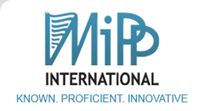Wang D. Methodological Approaches to Forming the Essence of the Concept of “Industrial Competitiveness”
Dapeng Wang
Southern Federal University, Rostov-on-Don, Russian Federation
Abstract. The modern global economy is going through a stage of profound changes caused by technological, social, institutional, and environmental factors. These changes are transforming the understanding of the competitiveness of the industrial sector. Being diversified and complex, this sector plays a key role in national and global economic systems, ensuring their growth, sustainability, and development. Companies operating in the industry face the need to innovate, optimize processes, and adapt to global market conditions in order to maintain their competitiveness. This article is devoted to the study of the methodological foundations of forming the concept of “industrial competitiveness.” The methodological basis of the research is based on the synthesis of classical and modern theories, including theories of comparative advantages, resource approach, and industrial organization. Particular attention is paid to Michael Porter’s competitive advantage model, which is seen as one of the most important tools for competitiveness analysis at the level of firms, industries, and countries. The article explores factors affecting competitiveness, such as innovation, environmental sustainability, the development of clusters, and government support. The results of the analysis reveal the limitations of traditional approaches based on the Heckscher-Ohlin and Porter models to the study of the essence of competitiveness, taking into account modern challenges of digitalization and production greening. The need to adapt approaches to competitiveness assessment, taking into account sustainable development and digital transformation, is shown. As a result, key areas for further research were identified, including the development of more comprehensive competitiveness models that take into account the interaction of economic, social, and environmental factors. The findings of the study have practical value for the development of strategies to increase competitiveness at the national and sectoral levels.
Key words: industrial competitiveness, theory of competitive advantages, Porter model, resource approach, industrial organization, clusters, national competitiveness, microlevel theories, macrolevel theories, sustainability.
Citation. Wang D., 2025. Methodological Approaches to Forming the Essence of the Concept of “Industrial Competitiveness”. Regionalnaya ekonomika. Yug Rossii [Regional Economy. South of Russia], vol. 13, no. 1, pp. 112-119. (in Russian). DOI: https://doi.org/10.15688/re.volsu.2025.1.11
Attachments: /upload/medialibrary/8c0/x0tp2iv7lan0ha55mut7i5c9qv6by524.pdf







